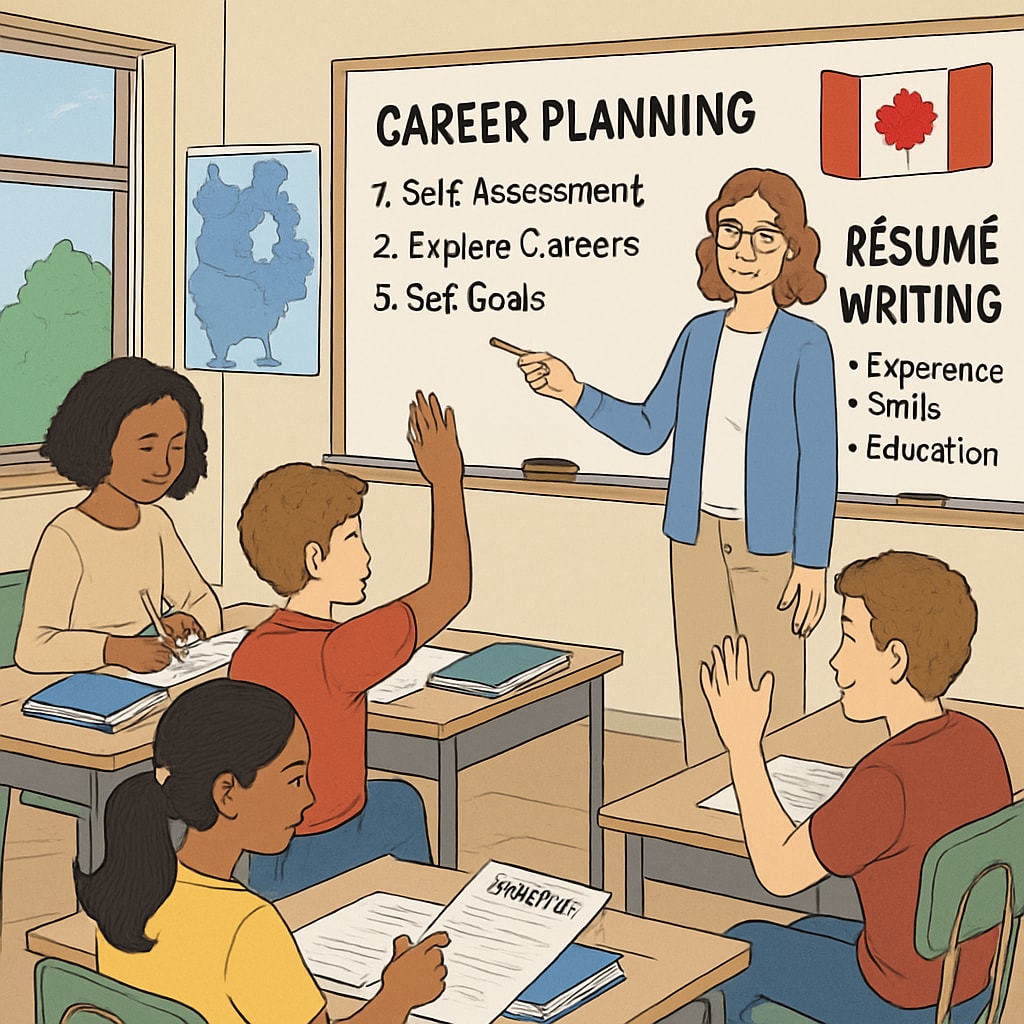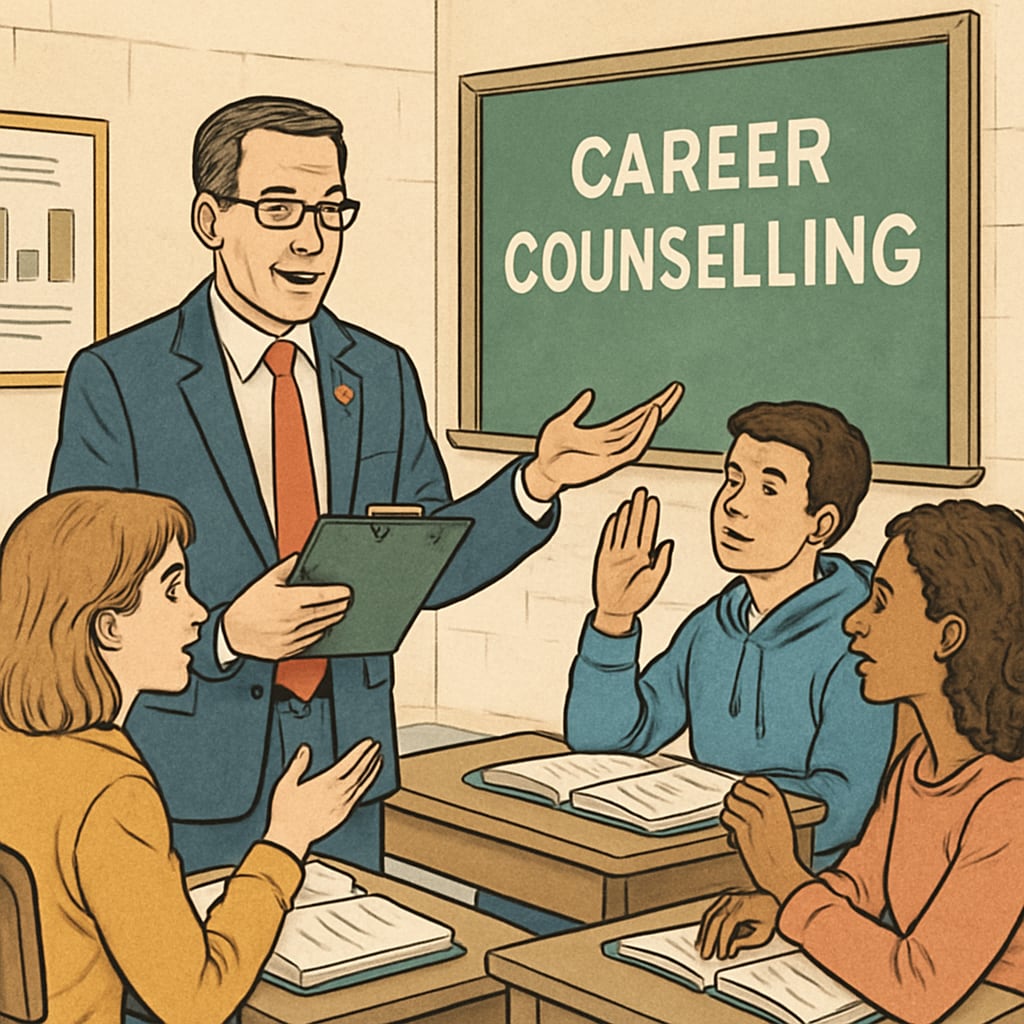The importance of “resume assistance in Canada” for students, particularly in the K-12 education system, cannot be overstated. Early career planning and the development of resume-writing skills help students build a foundation for their professional lives. This article delves into how Canada’s education system integrates career awareness and resume preparation, explores international best practices, and offers actionable insights for educators and parents.
Why Resume Preparation Matters for K-12 Students
Resume preparation is often overlooked in K-12 education, but introducing these skills early has multiple advantages. For one, it makes students aware of their strengths and achievements, fostering self-confidence and a sense of purpose. Additionally, resumes serve as a tool to help students apply for internships, part-time jobs, or even scholarships.
In Canada, many schools incorporate career education programs that emphasize practical skills like resume writing. These initiatives not only prepare students for the job market but also align with a broader goal of fostering lifelong learning and adaptability. According to Britannica, education systems that emphasize practical skills tend to produce more well-rounded individuals ready to meet the challenges of a dynamic workforce.

International Perspectives on Career Planning
Countries like Canada have made significant strides in embedding career planning into their education systems. For example, many Canadian schools partner with local businesses and organizations to offer career-oriented workshops and mentorship programs. These programs often include resume preparation as a key component, helping students understand industry expectations.
In contrast, some education systems around the world focus more on academic achievement, leaving career preparation as an afterthought. However, integrating international resources, such as global resume formats or LinkedIn tutorials, can bridge this gap. Collaboration with professionals in other countries is another avenue to enhance students’ learning experiences.
For instance, the use of international platforms like LinkedIn can expose students to global opportunities while also teaching them how to showcase their skills effectively. As highlighted by Wikipedia, leveraging digital tools is becoming increasingly essential in modern education.

Practical Tips for Integrating Global Knowledge
To effectively combine international insights with local education, consider the following strategies:
- Introduce Resume Writing Early: Begin with simple exercises like listing achievements or extracurricular activities in elementary school.
- Collaborate with International Mentors: Use platforms to connect students with professionals in Canada and abroad for resume feedback and career advice.
- Leverage Technology: Introduce tools like Canva or Zety for creating visually appealing resumes that align with global standards.
- Host Career Days: Invite speakers from diverse industries to share insights on what employers look for in resumes.
Implementing these practices can make students more adaptable and globally competitive. Furthermore, integrating feedback mechanisms, such as private messaging with mentors (e.g., “private messaging for resume help”), can provide personalized guidance and enhance learning outcomes.
The Role of Private Messaging in Resume Assistance
One innovative approach is using private messaging to facilitate one-on-one resume assistance. Platforms like email, LinkedIn, or even school-managed systems can connect students with Canadian professionals for personalized feedback. This method ensures that students receive constructive criticism tailored to their unique goals and cultural context.
In addition, private messaging creates a safe space for students to ask questions without fear of judgment. This can be particularly beneficial for younger students who may feel intimidated in group settings. By leveraging this strategy, educators can build a bridge between classroom learning and real-world applications.
As a result, students are better equipped to present themselves professionally, both locally and internationally. This aligns with Canada’s broader educational goal of preparing students for global citizenship and lifelong success.
Conclusion
Incorporating career planning and resume preparation into K-12 education is vital for nurturing well-rounded, globally aware individuals. Canada’s education system provides an excellent model, but there is always room for growth and innovation. By blending local resources with international expertise, educators can create a more dynamic and inclusive learning environment.
For parents and educators, investing in early career education, including tools like “resume assistance in Canada,” is a step toward empowering students for a brighter future. Whether through private messaging, workshops, or mentorship programs, the focus should remain on equipping students with the skills they need to succeed in a competitive global landscape.


